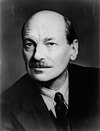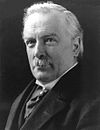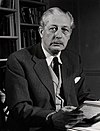Welcome! Check out today's deaths, recent deaths, or our deaths stats.
Feeling experimental? Head on over to our newest (and darkest) feature: Next-2-Die™ predictions
 Clement Attlee
Clement Attlee


Prime minister of the united kingdom from 1945 to 1951 (1883–1967).
Born January 3rd, 1883 in Putney.
Died October 8th, 1967 at 84 years old in Westminster Hospital (pneumonia).
Clement Attlee, the statesman who served as the Labour Prime Minister of the United Kingdom from 1945-1951, died on 8 October 1967, aged 84. Attlee leaves behind a legacy of remarkable reform as Britain’s Prime Minister, and fostered a lasting legacy in his work leading the UK in the post-World War II years. Attlee, born in 1883, was a decorated veteran of the First World War who joined the Labour Party in 1922, serving in several positions before becoming the Parliamentary Leader of the Labour Party in 1935. After World War II, Attlee was elected Prime Minister with a landslide majority in the General Election of 1945. During his premiership, he spearheaded the creation and implementation of the postwar Labour government’s far-reaching reforms, including the establishment of the National Health Service, the creation of a welfare state, and the nationalisation of some major industries. Throughout his career, Attlee held a variety of prominent titles with great distinction, including that of President of the Board of Trade in the wartime coalition government, Deputy Prime Minister, as well as Chancellor of the Exchequer and Home Secretary in the postwar Labour government. Attlee led the Labour Party once more in the 1951 election, but was narrowly defeated by the Conservatives. He continued to serve in the House of Commons until retiring to the House of Lords in 1955, where he remained until his death. His death is mourned by those who knew him, and his legacy lives on as a testament to the social progress he inspired and drove during his time in office.
You might also be interested in...


Winston Churchill
Born November 30th, 1874 in Blenheim Palace.
Died January 24th, 1965 at 90 years old



Do not fear death. Death is always at our side. When we show fear, it jumps at us faster than light. But, if we do not show fear, it casts its eye upon us gently and then guides us into infinity. Laughing Bull